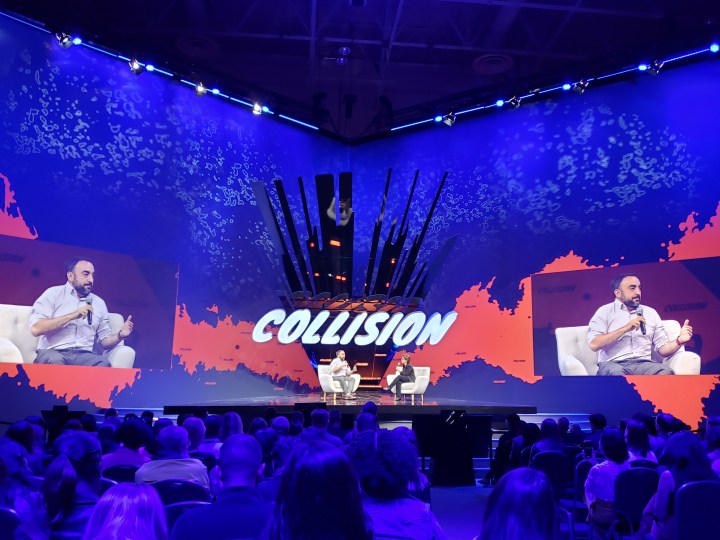
“Sartre said ‘Hell is other people.’ Well, Facebook is other people.”
In other words, the problems Facebook has become known for: The rise of hate speech, the trolling, the comment threads that seem to come from the underbelly of society? Yep, that’s hell right there, and frankly, why would you expect things to be different? That’s what people do.
That’s not our opinion, however: That’s Alex Stamos nailing the issue with Facebook squarely during a chat at the 2019 Collision Conference with Recode co-founder Kara Swisher. His opinion should carry some weight: Stamos is the former chief security officer (CSO) at Facebook, and while he’s no longer directly in touch with leadership at the social media giant, he’s probably should be. Stamos is something of a defender. He thinks the site has gotten a bad rap.
“I don’t think Facebook has ruined democracy,” he told a packed crowd in Toronto. “Facebook is misunderstood.”
Indeed, the issues we’ve seen at Facebook aren’t new, he pointed out. They are just getting a lot more public attention these days. Take the Russian election-hacking scandal, for example. That’s hardly the first time politicians have taken advantage of the reach and power of social media, he told Swisher. Barack Obama’s campaign used microtargeting and data on Facebook to crush Republican opponents in 2012.
“That was the first election that was thrown by Facebook,” Stamos said. The big difference, in his eyes: Many journalists liked the outcome of the Obama election better. Hold on, Swisher said: It’s not so black and white.
“There’s a big difference between the Obama team and a group of Russians in [Saint] Petersburg manipulating people,” she said, pushing back. His point holds, however: People have been using social media to manipulate crowds for years, and will continue to do so. The Russian playbook from the 2016 election is out there, he said, and there’s a real risk that the 2020 election will be influenced by a similar campaign, whether by the Koch brothers or George Soros or whomever.
“Pick your billionaire,” Stamos said. “It’s easy to say we want to stop the Russians. It’s a lot harder to say we want to stop some sort of political super-PAC.”
Earlier in the day, Ev Williams — the co-founder of Twitter — offered a far more optimistic view of social media, though he’s not sure what it looks like exactly. “There is a better version of social media to be invented,” Williams said.
For Stamos, the problems are systemic: The way Silicon Valley rewards developers and programmers doesn’t encourage socially conscious development so much as profitable building. And Facebook itself? Sure, the site gets a bad rap, but it might be time for change, he said.
“I think there are legitimate antitrust arguments for breaking up Facebook and breaking YouTube from Google,” he said.
Again, Stamos said he’s no longer directly in touch with leadership there. But he probably should be.


